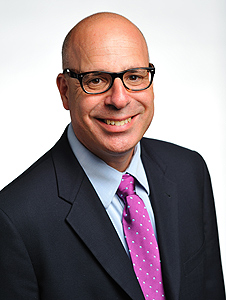
London’s quiet again. The 16,000 police did their job, and the riots have been quashed. The city is no longer burning. The phone calls from anxious parents have stopped. Our 37 students will travel to London to study abroad for the semester in less than two weeks, and we’re sending hundreds more to other destinations around the world. Study Abroad is healthy at UConn. But my mind is not entirely at ease.
Like everyone else, I’m worried about the current global financial crisis.
To be sure, the 2008 recession impacted study abroad. Participation fell flat that year at UConn for the first time since 2004, and it even dropped slightly in the following one. But while the economy was hitting our students and their families hard, the government, the business community, and higher education were championing study abroad. After 9/11, study abroad participation surged in the name of national security, a global economy, and the need to create citizen diplomats to counter the hatred aimed at the United States. With the election of Obama, ours was to be a new era of global cooperation. Global competence was becoming a core value of higher education. Talk of global citizenship echoed down the halls of colleges and universities. The increase in study abroad actually resumed last year, despite the lackluster recovery. UConn students went overseas in record numbers.
But something changed this summer. The economy got worse. Some economists began to warn of a double dip recession. And all the talk of global cooperation has been replaced by that of deficits. We hear only about the need to cut back and provide minimal services. Higher education has been forced to slash budgets just to ensure that students can get the courses they need. The voices describing study abroad as essential for a 21st century education are softening, and I fear those who view study abroad as a luxury that we can do without may get louder.
Something else changed this summer. I can’t recall a time of more violence and disdainful rhetoric against diversity. In Norway, a country that has defined peace, a man executed 76 “liberals” in a personal battle against multiculturalism. In Sweden, a nation synonymous with human rights, the nationalist party gained seats for the first time, running on a campaign against immigration. And the anti-immigration rhetoric is sweeping across other parts of Europe and North America. Here in the United States, no sooner were we through with the thinly veiled racism driving the “birther” movement than we began hearing ever shriller calls for anti-Shariah legislation, for fear of an Islamic takeover of our judicial system. Bogeymen can be found everywhere.
Fortunately, the proponents of isolationist and illiberal policies are still on the fringes. We at the University should, however, do everything we can to make sure they don’t gain any more power. UConn has been successfully promoting study abroad as a means of preparing our students to assume leadership roles in business, government, and civil society in our era of globalization. We shouldn’t stop doing that. But we also need to return our attention to sending them abroad to gain a much deeper appreciation of difference, to help them become more tolerant of other cultures, and to ensure that they appreciate what it’s like to walk in another person’s shoes.


